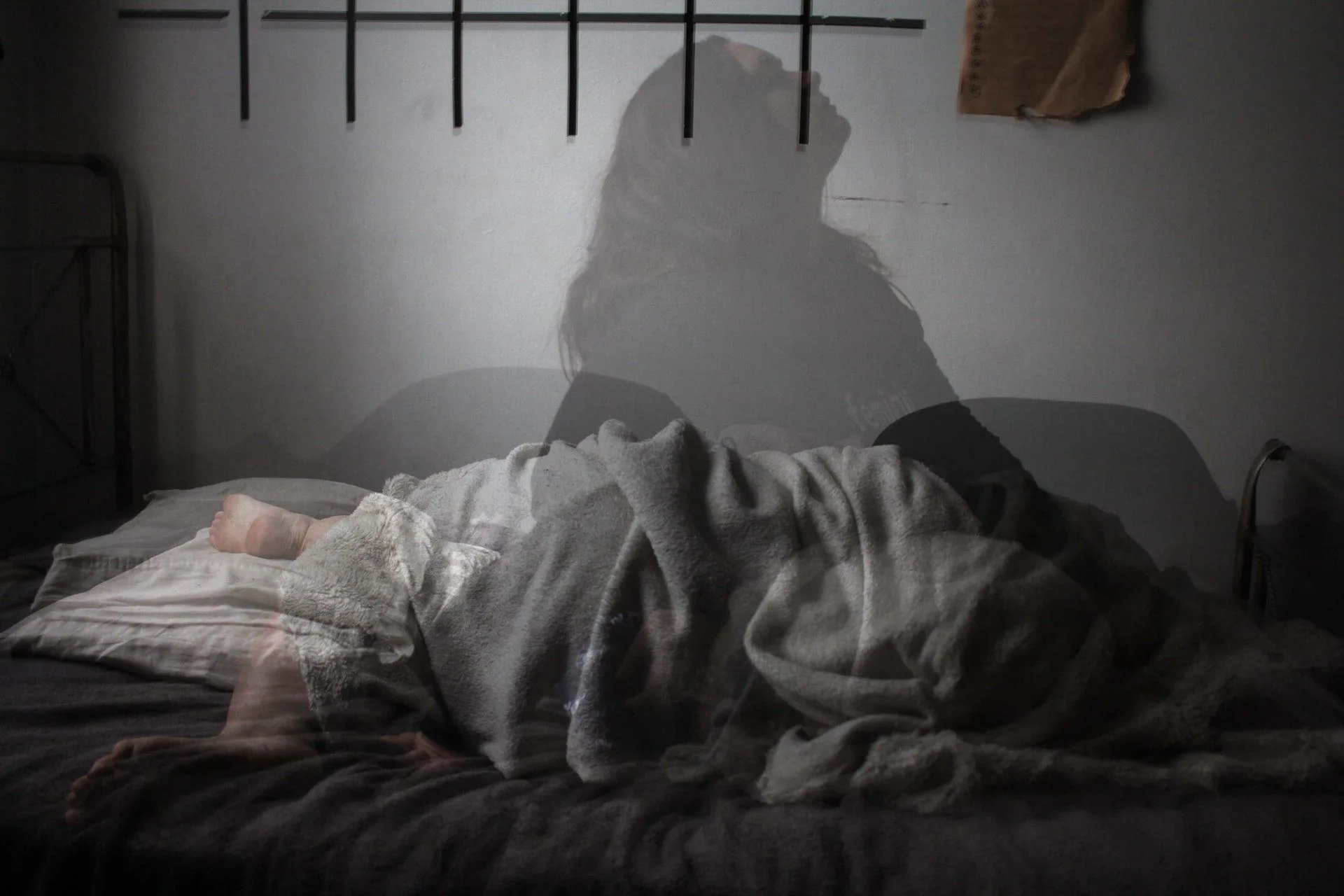At first everything goes well: you go to bed, fall asleep … And suddenly you wake up in the middle of the night. Does this story sound familiar? Here is what you need to know about night awakenings, and what to do.
There are a variety of external and internal factors that might cause a person to wake up unexpectedly in the middle of the night. Street noise, your partner snoring, too much light in the bedroom, an improper temperature (too warm or too cold), pets settling in your bed, an uncomfortable mattress, or a newborn who wakes up and enters your room are all common external reasons.
The internal reasons for awakening are just as varied and depend on many parameters. If this happens too often, it is worth seeing a doctor: it may be real insomnia. If these are single cases, listen to our advice.
Here are some causes of sudden night awakenings due to internal triggers.
Gender and age
The older a person becomes, the more likely they have sleep interruptions at night. Older people often have a nap during the day and wake up in the middle of the night.
Young women have nighttime awakenings due to their menstrual cycle: just before menstruation begins.
Pregnant women wake up at night for a variety of reasons: swollen legs, back pain, frequent urge to urinate, heartburn and baby movements. Nighttime awakenings can bother women at the onset of menopause because of fever, heart palpitations, sweating, stress, and anxiety.
Diseases and medications
Consult your doctor if you have sleep apnea (breathing stops), especially if you snore or wake up unrested in the morning.
A common reason of nightly awakenings is chronic pain, such as arthritis or fibromyalgia. Taking medications such as beta-blockers and diuretics has a bad effect on sleep.
Mental reasons
Stress, depression and anxiety disorder are often accompanied by insomnia and sudden night awakenings.
When to go to a doctor for help
It’s essential to speak with your doctor if you wake up around 3 a.m. and have problems falling asleep. Your doctor may suggest you try a sleep study to learn more about sleep cycles.
Insomnia can be treated with lifestyle changes, sleep and wakefulness schedule adjustments, or therapy. You can also see a doctor if these awakenings cause you problems throughout the day.
A content writer Veronica Blunsh from Write Any Papers described the following issues that can arise from a lack of consistent sleep:
- Problems with remembering things.
- Feeling very sleepy during the day.
- Inability to function at its normal level.
Now let’s look at how we can prevent nighttime awakenings without the help of doctors.
1. Allow yourself a couple of hours before bedtime to be free of electronic devices
Closer to night, the body actively begins to produce melatonin, which provides a mechanism for falling asleep. Too bright light, as well as the blue radiation of a cell phone, tablet, laptop can disrupt the natural process. That’s why it’s better to avoid social networking before going to bed and during sudden awakenings.
Photo by cottonbro from Pexels
2. Don’t look at the clock
It seems like the most natural thing to do when you wake up in the middle of the night. However, it is of no practical use. You’re just beginning to worry that there’s too much/not enough time left before the alarm clock rings, that you won’t be able to sleep anymore… And if you watch the time on your smartphone, the harmful blue light comes back on. It is not worth traumatizing your already sleepy psyche.
3. Do not panic if you suffer from night awakenings
Lie down and can’t persuade yourself to fall asleep again and just get annoyed more and more? Do not force the body – find yourself a soothing activity: read a book, meditate, do the crossword puzzle. Get up, take a walk around the room, and do something quiet and relaxing with dim lighting (don’t use your phone or computer). You’ll be distracted from your obsessive thoughts and you’ll probably have no trouble falling asleep.
Go back to bed only when you feel sleepy.
4. Breathe
Excessive muscle tension may be the cause of an unscheduled awakening. Breathing exercises will help to cope with this. Try a few simple exercises.
- Concentrate on taking calm, deep breaths.
- Sit with your back straight in a comfortable position. Close the right nostril, inhale through the left nostril and hold your breath, exhale through the right. Repeat, switching nostrils each time.
- Rhythmically inhale through your nose and exhale through your mouth.
5. Relax
Try relaxation exercises before you go to bed. For example, do some meditation. A few hours before bedtime, avoid stressful talks and situations.
Think of something pleasant. Where would you like to spend your holiday if you could? How would your ideal day go? What book or movie makes you smile? The most important thing is to concentrate on the details: noises, smells, and colors. If you indulge in imaginations, you will not notice how quickly you fall asleep again.
Conclusion
To avoid night awakenings, prepare the appropriate sleeping environment ahead of time. Check that nothing will make you wake up in the middle of the night. If noise may bother you, buy earplugs or find a source of quiet, monotonous noise. If the light gets in the way, good blackout curtains or a blindfold will help.
Make sure the room is well aired and that dark curtains are in place. Take a bath and listen to relaxing music.
Main photo credit: Photo by Megan te Boekhorst on Unsplash
About the Author
Helen Wilson is a professional content writer. Her main spheres of specialization are Health, Productivity and Self-development.
She also studies topics about psychology and meditation and provides help on how to calculate gpa.




